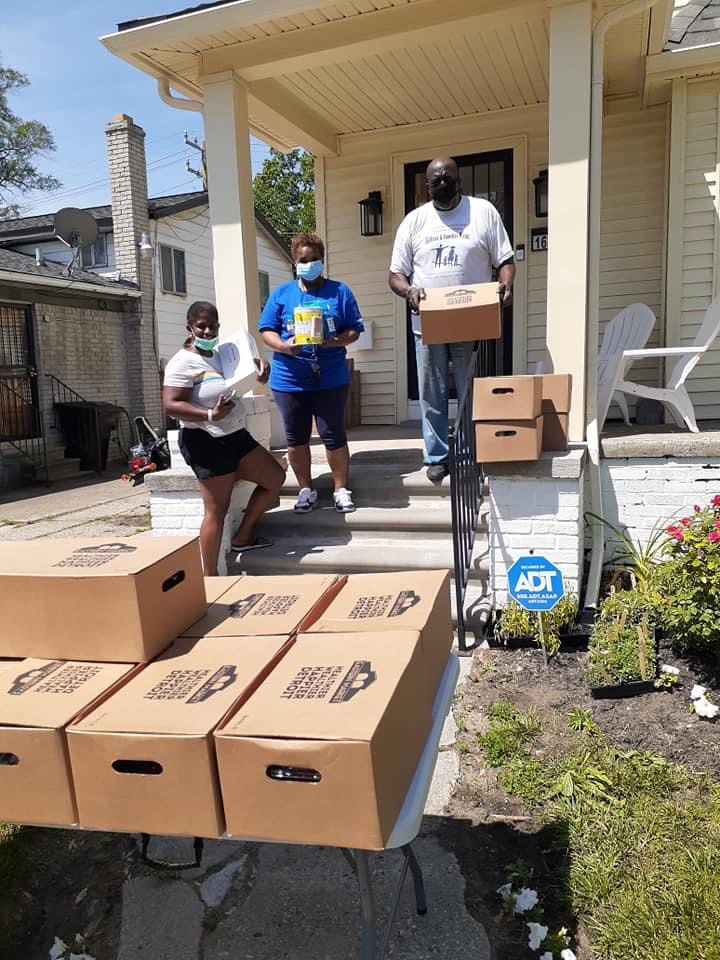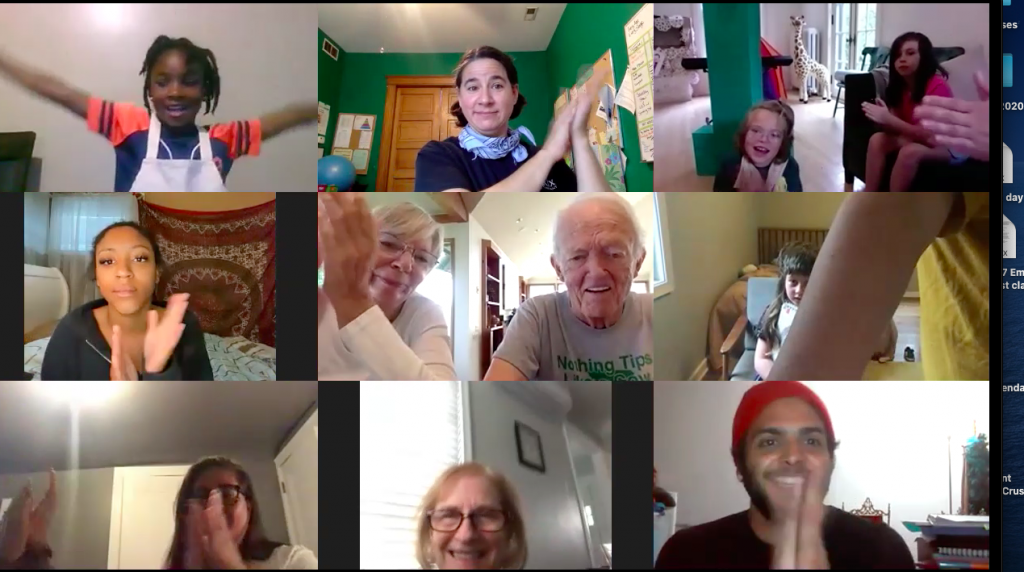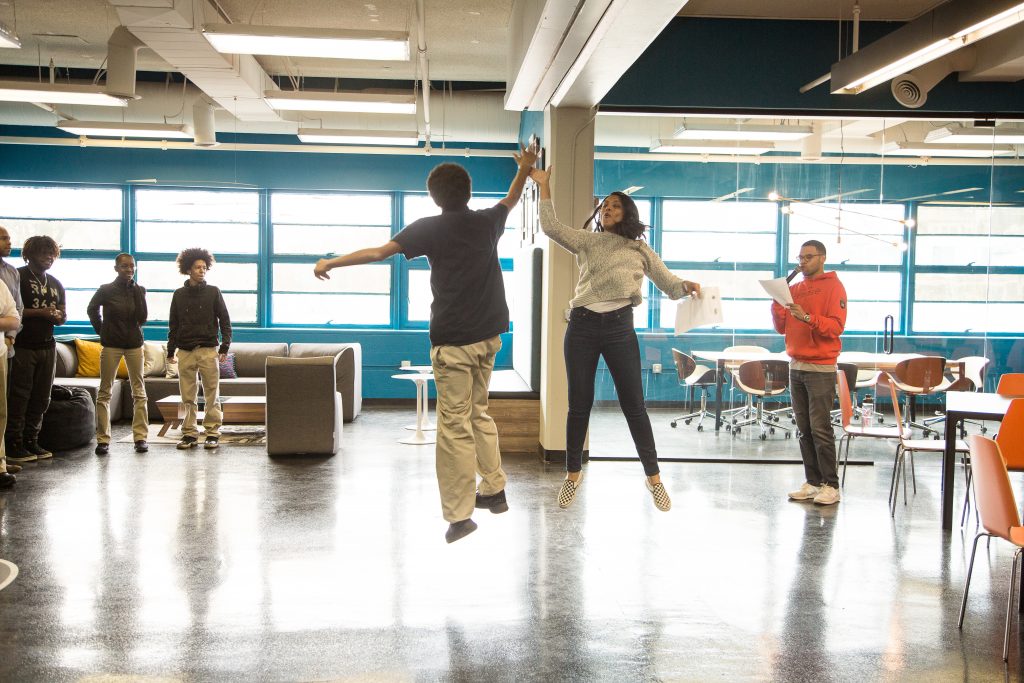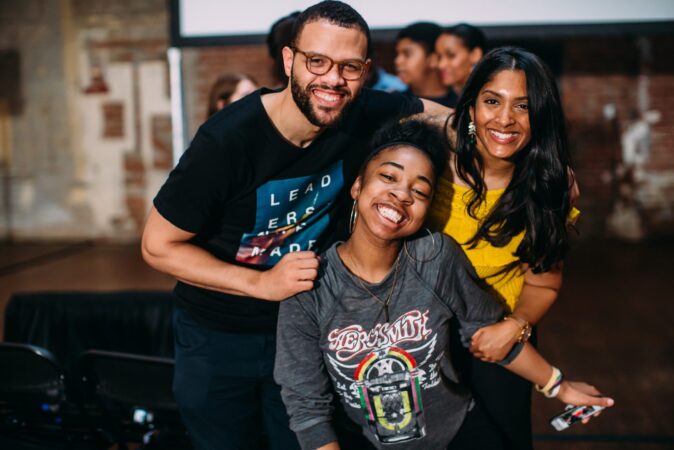Children are the future, and it is for this very reason that non-profits incentivizing and supporting youth are vital. Detroit schools suffer from a 62% chronic absence rate, 10% or more of the school year is missed by students. Detroit’s third-grade reading proficiency rate among students is a striking 15%. These numbers beg to be raised exponentially to provide better futures for our children.
Here are how four nonprofits are uniquely making great efforts to change these statistics for Detroit from the span of yesterday, to today, and tomorrow.
SKILLMAN FOUNDATION
For the past 60 years the Skillman Foundation has focused on offering support to k-12 education, after-school programs, and furthered pathways for Detroit youth in both education and career. Rose Skillman, a long time advocate for children, invested 60 thousand dollars in 1960 and founded the Skillman Foundation.
Over the next six decades, that money was donated and continued to grow due to the Foundation’s continued investments. Now nearly 670 million dollars have been given in grants, equating currently to about 17 million a year, and more than 500 million remains invested for future gifting.
The Skillman Foundation has witnessed first-hand many changes throughout its 60 years, but its mission continues much the same. According to the foundation’s Vice President of Program and Policy, Punita Thurman, this is due to ever-present barriers. Though these barriers change decade to decade, they continue to create roadblocks in children’s learning.
Thurman offers up the example of a present barrier brought about by the pandemic. Headphones with microphones are needed in order to participate effectively in zoom classes, especially for those with many family members at home. Prior to the pandemic, this was not very necessary for education, but as families are all quarantined together, this brings about the difficulty for concentration and participation for many students. “It’s those little things that will always get in the way of the big things being successful,” Thurman says.
This sentiment brings about the necessity for foundations like Skillman. In order to create actual change for kids, a community must be able to work together to take on all of the little things and bring about big and lasting changes. “…As a community or as a collective we sometimes think about the magnitude of “how do we solve a big problem?” Thurman continues, “And what we at the Foundation are committed to, and believe really critical, is that if you don’t stay proximate if you don’t stay connected at the individual level and the neighborhood level, you’ll also miss those little things that matter.”
BRILLIANT DETROIT
Detroit has grown a lot during this past decade of resurgence, but there is still much financial segregation in terms of zip code. This segregation creates pockets of poverty, supplying the neighborhood with limited food (food deserts), clothing, supplies, and schooling options. For Cindy Eggleton, the co-founder and CEO of Brilliant Detroit, this is a detriment to Detroit’s

FOOD DISTRIBUTION TO A NEIGHBORHOOD; BRILLIANT DETROIT
residents, especially children. “Our real focus is to ensure that zip code does not predict a child’s success,” she says. Thus, in order to combat this, Brilliant looks to provide holistic, whole family investment. By providing needs for multigenerational families, a path towards greater success is created.
Since its founding in 2016, Brilliant Detroit has been invited to invest in multiple neighborhoods around the city. Being invited in is a necessity for Brilliant, and the process of moving into a neighborhood is more extensive than finding a brick and mortar location. “We do a lot of listening to the neighborhood before we move in,” says Eggleton. Does the neighborhood need food distribution? Younger child-focused programs? Teen focused programs? Or all of the above and more?
Brilliant’s investments in their specific locations are pushing the community towards the better. Because each location is
entrenched in the neighborhood, everything the residents see and experience, the staff, and volunteers at Brilliant see and experience as well. Over the course of the pandemic, much of Detroit has dealt a lot of loss and upheaval. This has led to an opportunity for Brilliant to supply for neighborhoods’ needs. “We really asked what do you need and how do you need it,” Eggleton says. Whatever way the pandemic wind blew, Brilliant veered to provide as much aid as possible.
The future of Brilliant Detroit provides hope for many communities in Detroit. Their goal for 2024 is to be invested in 24 neighborhoods. According to Eggleton with that amount of investment, “We have the ability to change population-level statistics.” The ripple effects of a statistical change, such as Detroit’s 15% third-grade reading proficiency, could help to drastically improve the city, or zip codes’, poverty rate.
MATRIX THEATER CO.
This year marks Matrix Theatre Company’s 30th anniversary of combating social justice through performance theatre. Throughout the years, Matrix has seen changes in the exploration of creativity and performance, as well as what it means to fight for social justice.

MATRIX THEATER VIRTUAL PROGRAM SCREENSHOT
Matrix’s teaching artists vary in how they teach their classes. The teaching artists that are poets teach with more focus on writing or spoken word poetry, and the ones familiar with theatre teach more in the ways of creating or acting out a scene. Students are able to choose to either build a play, explore and perform pre-written social justice plays, or connect directly with a teaching artist, matched to the students’ interests and abilities.
The Director of Education at Matrix, Amy Johnson, is proud of the diversity of interests that the offered classes reach. Not only do they provide artistic opportunities for kids to learn more about themselves and grow through creating, but the classes are also applicable for students no matter their interests. “Our classes really sync well with individuals that want performance experience and like to perform, and also students that have never… put their foot in that world because we are not teaching them to be an actor in a traditional play,” says Johnson. “We are teaching them to be a performer and a creator.”
If there is anything we may have learned from the Black Lives Matter protests last year, it is that social justice still needs the forefront of our attention. Nonprofits like Matrix Theatre Company, which instill the importance of diversity and inclusion on the ground level, help to encourage the next generation towards a better future.
GIVE MERIT
Give Merit’s goal is to provide opportunities of experience through hands-on work. Similarly to Matrix, Give Merit wants to encourage youth by instilling a sense of creativity. Instead of in a performance, however, Give Merit shows students how to work on a project as a team and carry it all the way through to a real-world product. Their program, FATE, inspires students to aspire to be who they want to be, believe in who they are, and contribute by finding their own passions in the world.
FATE traditionally focuses on high-school age students, beginning in students’ freshman years and continuing through graduation. Every year, each grade contributes in a capstone project that directly coincides with Give Merit’s sister company, Merit, a clothing brand that offers much of its profit back to Give Merit. Many of the capstone projects revolve around design,

GIVE MERIT STUDENTS HIGH FIVE
soft skill development, personal development, and the understanding of the inner workings of a business itself.
In the last three months of the year, the freshmen students are split into teams to work on a campaign for Merit as their capstone project. This includes a 60 second commercial and a print advertisement. Prior to the pandemic, students present their campaign, and a winner is chosen by many individuals who work in the marketing and PR in Detroit. The winning team is paid for their work, and then it is put out into the real world.
The Executive Director of Give Merit, Kuhu Saha, says that for many students, real world work changes their perspective of their abilities. They recognize their creative passions and find a drive to push forward in all other aspects of life. “This program allows you to identify the fact that you have the ability to come up with creative solutions to things,” she says.
Through the nine years since its inception, Give Merit has made an impact on education in Detroit. “What we feel like we provide,” says Saha, “is really the motivation and want to be in pursuit of my [the teen’s] dreams, and then making the connection that school is a tool, education is a tool for me [the teen] to continue to pursue those things.” Students participating in FATE have higher GPAs, lower absentee rates, higher SAT scores, and fewer detentions. Give Merit pushes students to be confident in themselves, which results in a boosting of their overall work ethic.
Continued support of Detroit’s youth by these and other nonprofits, as well as individuals invested in the city itself are helping to lead Detroit forward into a better tomorrow.






















